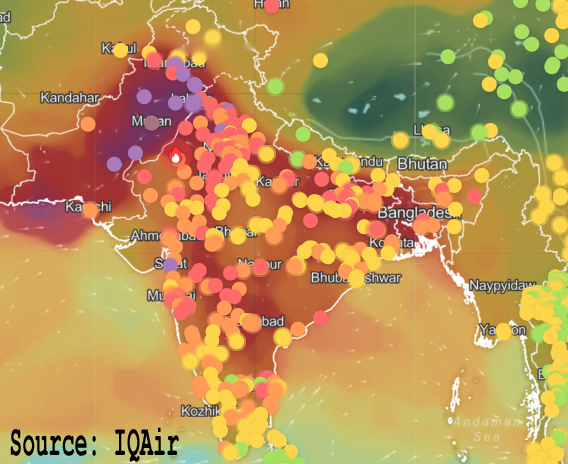
Study Links PM2.5 Exposure Linked to Birth Complications
A landmark study conducted by Harvard's T.H. Chan School of Public Health found a troubling association between exposure to fine particle air pollution (PM2.5) and altered immunological responses in pregnant women, which could contribute to poor birth outcomes. Published in Science Advances rrecently, the study is the first to examine the single-cell effects of PM2.5 on maternal and foetal health.
"This study represents a substantial step forward in understanding the biological pathways through which PM2.5 exposure affects pregnancy, maternal health, and foetal development," stated Kari Nadeau, the paper's corresponding author and chair of the Department of Environmental Health. She emphasized the innovative approaches used, which provided fresh information about immune responses to environmental exposures.
Research has long linked PM2.5, or airborne particles with a diameter of less than 2.5 microns, to major health hazards like respiratory and cardiovascular disorders. Previous research on pregnant women has connected PM2.5 exposure to issues such as preeclampsia, low birth weight, and developmental impairments in children. However, this new study goes deeper, revealing the molecular changes produced by PM2.5 exposure and their possible impact on pregnancy.
Researchers used Environmental Protection Agency (EPA) data to establish PM2.5 exposure levels for study participants, who comprised both non-pregnant women and women at 20 weeks of pregnancy. The scientists used cutting-edge equipment to study how pollution affected the DNA of individual cells. They specifically looked at alterations in histones, proteins that control the release of cytokines, which are essential chemicals in inflammation.
Watch:
The study discovered that PM2.5 exposure drastically affected pregnant women's histone patterns, altering the normal regulation of cytokine genes. This imbalance increased inflammation in both the woman and the developing fetuses. Researchers have linked chronic inflammation during pregnancy to an increased risk of problems such as premature birth, reduced foetal growth, and other unfavourable outcomes.
"Our findings highlight the importance of reducing air pollution exposure in pregnant women to protect maternal and fetal health," stated co-author Youn Soo Jung, a research associate in the Department of Environmental Health.
The findings highlight the urgent need for both public health actions and therapeutic strategies to limit PM2.5 exposure in pregnant women. Improved air quality standards and urban design to reduce pollution exposure could have a significant impact on mother and child health outcomes.
Furthermore, healthcare providers can play an important role by advising pregnant women on how to decrease their exposure to PM2.5. Simple efforts, such as avoiding outdoor activities on high-pollution days and using air purifiers indoors, can help lower risks. \
This study establishes a precedent for future research into how environmental influences affect human health at the molecular level. The researchers employed a novel approach to investigate the long-term effects of pollution on immune function and inflammation, specifically focusing on the histone changes induced by PM2.5.
"These findings not only advance our understanding of PM2.5's impact but also open new pathways for preventive strategies to safeguard maternal and fetal health," says Nadeau.
As globalization and industrialization continue to exacerbate air pollution, the study serves as a call to action for governments, academics, and physicians. Protecting pregnant women from the detrimental consequences of PM2.5 is a public health issue.